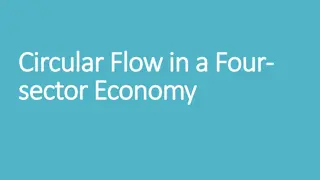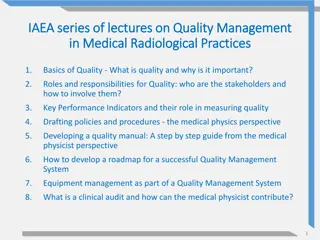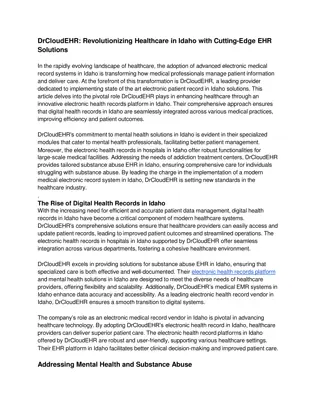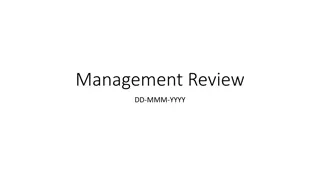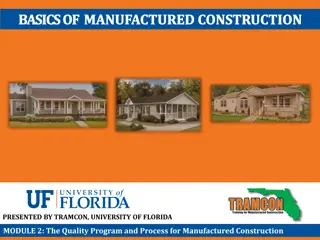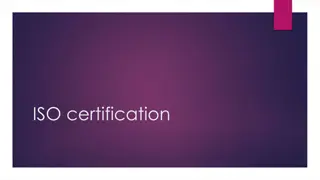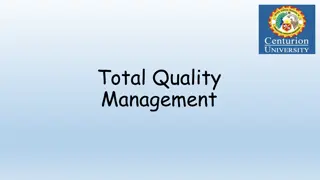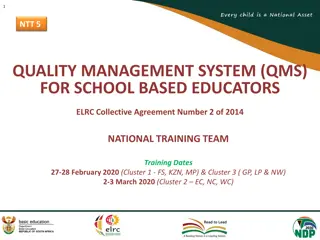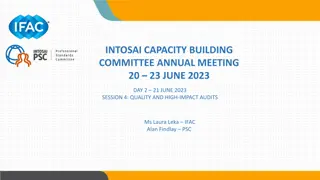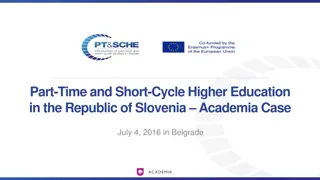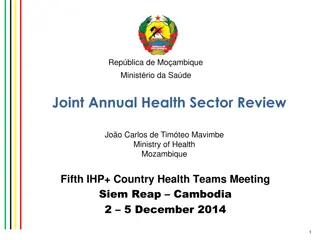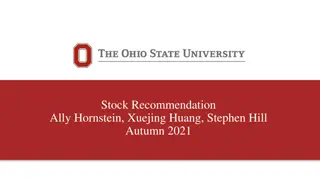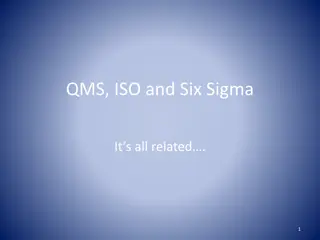Quality Management System (QMS) in Education Sector
The Quality Management System (QMS) for school-based educators aims to assess performance levels, improve accountability, and enhance educator efficiency. Established through Collective Agreement 02 of 2014, the system helps recognize good performance, address under-performance, and ensure educators maintain integrity and positive attitudes.
Download Presentation

Please find below an Image/Link to download the presentation.
The content on the website is provided AS IS for your information and personal use only. It may not be sold, licensed, or shared on other websites without obtaining consent from the author.If you encounter any issues during the download, it is possible that the publisher has removed the file from their server.
You are allowed to download the files provided on this website for personal or commercial use, subject to the condition that they are used lawfully. All files are the property of their respective owners.
The content on the website is provided AS IS for your information and personal use only. It may not be sold, licensed, or shared on other websites without obtaining consent from the author.
E N D
Presentation Transcript
1 NTT 3 QUALITY MANAGEMENT SYSTEM (QMS) FOR SCHOOL BASED EDUCATORS ELRC Collective Agreement Number 2 of 2014 NATIONAL TRAINING TEAM Training Dates 27-28 February 2020 (Cluster 1 - FS, KZN, MP) & Cluster 3 ( GP, LP & NW) 2-3 March 2020 (Cluster 2 EC, NC, WC)
2 3. BACKGROUND & RATIONALE
3 3.1 BACKGROUND The IQMS has been in place since 2003, but was only implemented in schools from 2005. Despite all the measures put in place to strengthen its implementation, schools continued to experience challenges. The Department of Education conducted a formal review of structures and processes that hindered the successful implementation of the IQMS. As a sequel to the research conducted and persistent efforts by Teacher Unions on strengthening Teacher Development (TD), the Teacher Development Summit was held on 29 June to 2 July 2009; The TD Summit agreed, amongst others, that: o a clear, coherent policy and regulatory environment be designed for teacher appraisal and teacher development; o teacher appraisal for development be delinked from appraisal for purposes of remuneration and salary progression; and o the IQMS be streamlined and rebranded.
4 3.1 BACKGROUND (cont.) Collective Agreement 02 of 2014 on the Quality Management System (QMS) for school-based educators was approved by all parties at ELRC in November 2014 and finalised at the ELRC on 03 September 2019. An addendum to the Agreement outlining the timeframes for training, capacity building and implementation was signed on 10 September 2019.
5 3.2 RATIONALE What is Quality Management System (QMS) for educators? Quality Management System is a performance management system for school-based educators, designed to evaluate the performance levels of individuals in order to achieve high levels of school performance. It is critical in assessing the extent to which educators are performing in line with their job descriptions in order to improve levels of accountability in our schools. ELRC Collective Agreement No. 2 of 2014 (page 7)
6 3.2 RATIONALE (cont.) Purpose of the Quality Management System To determine levels of competence of all educators; To enhance educator efficiency, effectiveness and good performance; To improve accountability levels within schools; To provide a basis for decisions on mechanisms to recognize good performance and address under-performance; To ensure that educators perform their duties with integrity, and maintain a positive, vigilant attitude towards all learning activities; To provide a basis for paying salary progression, rewards and other incentives; and To provide mechanisms for assessing educators, taking into account the context within which they operate. ELRC Collective Agreement No. 2 of 2014 (page 8)
7 3.3 RATIONALE (cont.) Guiding Principles: To recognize that schools are not the same and are operating at different levels of performance and context. To minimize subjectivity through transparent and open discussion throughout the appraisal process To provide feedback by focusing on: Performance and not personality; Availability of evidence and not assumptions; Objectivity and not subjectivity; The specific and concrete and not the general and the abstract ELRC Collective Agreement Number 2 of 2014 (pages 8-9)



